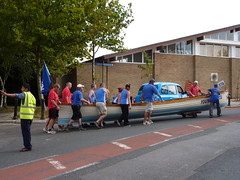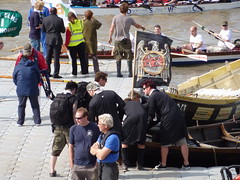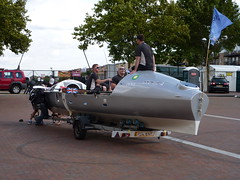After a lovely sunny weekend break from blogging it’s time to get back to the grindstone and continue my series of posts about the various small parties of the upcoming European elections.
I first became aware of Jury Team when I heard that Esther Rantzen had joined them and was standing as a candidate. Well I have to admit that put me off them from the start. However it did get me to look at their website where I found out that they were founded by former Director General of the Conservative Party, Paul Judge (he claims the name of the party isn’t a joke about his surname); and that independent MP Dr Richard Taylor and former independent MP Martin Bell were also joining. This made them a lot more credible in my eyes. While I have a fondness for ideologues there is something to be said for a party founded by people with a bit of practical political experience.
Web Presence
Pretty good overall. Not as appealing visually as the Green Party website, but featuring the same wholehearted embrace of social media. The local candidates have short sections showing every sign of having been written by the candidates themselves.
Policies
This is where we run into a bit of a problem because Jury Team isn’t a political party in the traditional sense. Apart from a basic set of principles every candidate has to sign up to, they don’t have policies as such. Indeed one of Jury Team’s proposals is the abolition of the party whip, so even if they did have policies there would be no guarantee that an individual MP would vote for them.
However I would like to point out item 1 of the candidate agreement.
I agree not to support any policies discriminating on the basis of race, colour, gender, sexual orientation, disability or religious or other belief.
That already puts them head and shoulders above a number of other parties I could mention.
The party of independents concept has the added complication that in a regional list system like the current election you could be putting an X next to four candidates with radically different ideologies. However for practical purposes they are unlikely to get more than one MEP so I really only need to consider the candidate at the top of the list. Which in this case is Paul Sabanskis. He also has his own site at www.pjsmep.eu
The first thing to mention is that the wonderful votematch.co.uk puts me in pretty close alignment with Mr Sabanskis’s views. In his own words:
Wales needs strong representation within the UK, and within Europe, so that areas can gain access to funding that is designed to help economies transform from being resource-led (e.g. coal / steel) to taking advantage of the opportunities offered by the Internet Age. I especially would like to see greater advantage being taken of environmentally sensitive technology, as this would be a great way of regenerating former mining communities.
While the phrases like “environmentally sensitive” always worry me votematch says that he is pro-nuclear which leads me to believe that he is fairly pragmatic.
Zero tolerance on crime, with harsh punishments for repeat offenders.
Well that sounds pretty illiberal to my ears, but it would depend on what this actually meant in practise. Mainly because we’ve heard zero-tolerance from a number of politicians, none of whom have actually implemented it.
One thing that he says that did make me happy is this:
I have an open mind on most issues and prefer to act based on the facts and evidence.
European Policies
Jury Team have a list of core proposals most of which revolve around reforming the nitty-gritty of Westminster parliamentary procedure. Without wading into the details it seems that they boil down to various fairly sensible ways of increasing parliamentary oversight and pruning back the power of the executive. If this sensibility transferred to the European Parliament then I would consider that to be a good thing.
Mr Sabanskis addresses a couple of European issues himself.
Scrap the CAP which is wasteful.
The CAP in this instance being the Common Agricultural Policy. It is indeed a horrifically wasteful policy so I’m in full agreement with him here.
I believe we should have a proper debate about our role in Europe with facts rather than scaremongering and when promised a referendum, we should have one, not excuses and hair-splitting.
I couldn’t argue with that.
Not Mental
Mr Sabanskis is quite outspoken and has a tendency to resort to “x should be banned”, rather than taking a more nuanced approach to policy. That being said I would hate to conflate strong opinions with being a nutter.
As a whole the Jury Team proposals are almost boringly reasonable.
Summary
I like the idea of more independent politicians and have a lot of sympathy with the idea that political parties are kind of a bad idea in and of themselves. The European Parliament could do with more politicians who have signed up to the principles of transparency and oversight.
I might take a punt on Jury Team despite the obvious irony of an anti-corruption party started by a man who lost a Libel case over the allegation of party donation fraud.













